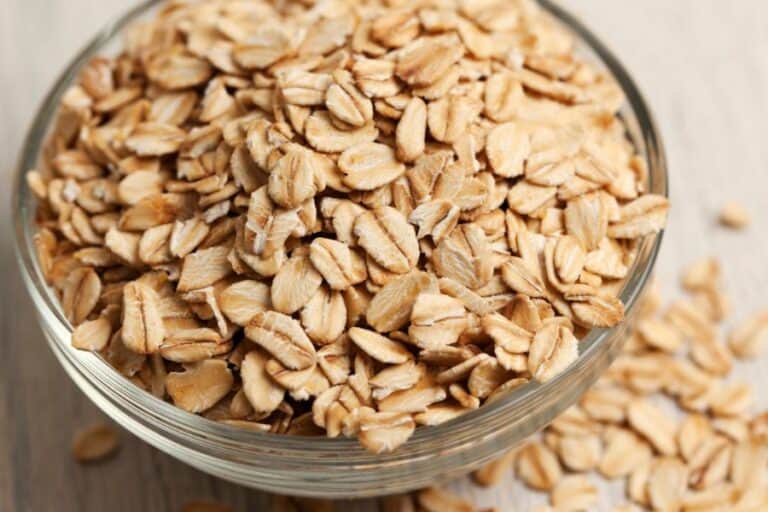Can You Survive On Plant based Nutrients Alone?

Plant-based diets sound exciting, sustainable and healthy. But, they come with many risks. Careful planning is key to surviving on Plant-based nutrients alone.
Without a doubt, plant-based vegan diets are a very healthy diet and lifestyle choice. But what does plant-based nutrition mean? How could an exclusively plant-based diet be harmful? Does a plant-based diet mean just eating vegetables?
Is it similar to vegan diet or vegetarian diet? Read on to learn more about the health benefits of living solely on plant-based nutrients, the risks involved, and how well you can plan a well-balanced plant-based diet.
What Are Plant-Based Diets?
As the name suggests, plant-based diets involve consuming foods and food groups derived from plants alone. However, some plant-based diets allow for a little flexibility. For example, you can add fish or meat to the meal in some plant-based diets.
Plant-based diets usually comprise of a variety of seeds, legumes, nuts, grains, vegetables, and fruits. These foods are processed into cereals, juices, sugars, fermented legumes, cooked vegetables, spices, and bread. These generally aim to minimize processed food [1]National Library of Medicine: Nutritional Update for Physicians: Plant-Based Diets intake and promote the consumption of whole food plant based diets.
Types of Plant-Based Diets
People often misunderstand plant-based diets as vegan or vegetarian. However, a point of difference is that those diets are defined by what is excluded from them. Let’s see some types:
1. Whole food plant-based Diet
Consuming plant-based nutrients is taken to a different level in the whole food plant-based diet, since all processed foods are disallowed. Here, the focus is on strictly avoiding processed foods in every possible way. Though a beneficial eating pattern, this type of diet could lead to disorders in eating behavior.
2. Vegan Diets
In a vegan diet, all animal-sourced products like meat, dairy, fish, and eggs are excluded. As the most restrictive form of plant-based diets, some adherents even abstain from using other lifestyle animal products such as wool or leather.
3. Vegetarian
Vegetarian diets are usually less restrictive. Like a vegan diet, a vegetarian diet may exclude animal meats(seafood, poultry, red meats), but it may allow other animal products like eggs and dairy.
4. Mediterranean
The Mediterranean diet is quite similar to whole food plant-based diets. The foundation of Mediterranean diets is whole food plant-based, like whole grains, vegetables, seeds, nuts, and fruits. However, the main difference is that a limited amount of eggs, chickens, and dairy products are allowed, often once per month.
5. Flexitarian
Like a vegetarian diet, a flexitarian [2]Harvard Health Publishing: What is a plant-based diet and why should you try it? or semi-vegetarian diet is a flexible plant-based diet that allows for some animal products like meat, fish, and dairy foods. However, their additions are usually limited.
The table below summarizes the types of plant-based diets.
| Food Source | Plant-based Diet | Vegan Diet | Whole Food Plant-based Diet |
| Legumes | ✅ | ✅ | ✅ |
| Vegetables and Fruits | ✅ | ✅ | ✅ |
| Whole Grains | ✅ | ✅ | ✅ |
| Processed Foods | ✅ | ✅ | ❌ |
| Oils | ✅ | ✅ | ❌ |
| Dairy and Vegan Products | ❌ | ❌ | ❌ |
| Meat and Poultry | ❌ | ❌ | ❌ |
| Sea Foods | ❌ | ❌ | ❌ |
Health Benefits of A Plant-based Diet
It is generally agreed upon that every diet aims for health improvement. Following plant-based diets are helpful to the human body as long as it is properly balanced. they can significantly lower risk of several chronic diseases This section will show you the various health benefits of a plant-based diet.
1. Lowering the risk of heart disease
As one of the body’s major organs, heart health must be safeguarded and protected from efficiency reduction. There is considerable scientific evidence to prove that the intake of plant-based nutrients [3]American Heart Association: Eating a plant-based diet at any age may lower cardiovascular risk can significantly reduce or lower the development of heart diseases and even blood pressure.
This reduced risk of cardiovascular disease is often attributed to low cholesterol levels found in people who eat less meat. It is also due to the fact that most plant based diets like vegan diets, and meditaranean diets stress on the consumption of diets rich in whole plant foods, as against highly processed foods that are high in sodium and trans fats. However, this effect may vary based on the type of vegetarian diet and some factors such as pre-existing physical conditions, genetics, and so on.
2. Obesity reduction
Another plant-based diet benefit is its ability to reduce obesity. Studies have shown a correlation between meat consumption and obesity; therefore, for those looking to reduce body fat, switching to a plant-based diet can help.
Plant-based diets have fewer calories and energy density while being rich in fiber, and carbohydrates, as opposed to non-plant-based diets. The theory supporting this is that sticking to a plant-based diet increases resting expenditure and satiety.
3. Management and prevention of diabetes
Medical practitioners recommend plant-based diets to reduce the chances of developing diabetes. Eating plant-based diets with low fat or little meat might help treat and prevent diabetes. Studies show that this is possibly due to insulin sensitivity improvement and the reduction of insulin resistance.
Risks of A Completely Plant-based Diet
Like everything in the world with advantages, there are always disadvantages. Sticking solely to plant-based diets though beneficial, comes with its risks. The human body needs various minerals, vitamins, and amino acids for its health and sustenance.
This is why people have cultivated the habit of combining foods to form a balanced, nutrient-rich diet that cannot be found in a single diet. This section will show you some of the risks of a solely plant-based diet.
1. Vitamin D Deficiency
Strictly sticking to a plant-based diet could lead to vitamin D deficiency. Though vitamin D deficiency can be common among the general populace, planning a well-balanced and adequate diet that is not solely plant-based can reduce vitamin D deficiency in the body.
Milk is a significant source of vitamin D for many people living in the United States. Eliminating animal-origin products inevitably leads to vitamin D deficiency. This is especially true of vegans. The key to reducing vitamin D deficiency is adding supplements with vitamins or consuming other food products rich in vitamin D.
2. Calcium Deficiency
Adhering solely to plant-based diets might likely lead to calcium deficiency since there isn’t a sufficient amount of it in plant foods. Moreover, eating plant-based foods low in calcium can risk fractures and impaired bone mineralization.
It is of course true that there are natural plant-based foods that contain calcium. However, getting the right amount of calcium needed by the body cannot solely be achieved by eating plant-based diets alone. This is why you must supplement your meals with other food sources that can provide the essential calcium the body needs, thereby avoiding calcium deficiency.
3. Iron and zinc deficiency
Iron can be found in plant-based diets. However, some studies revealed that iron in plant-based diets had less bioavailability than iron found in meat. That could lead to lower levels of iron in the body.
On the other hand, zinc is essential to the human body and cannot be gotten solely through plant-based diets. So following a plant-based diet would require you to use zinc and iron supplements.
4. Fatty acid deficiency
Another risk of an entirely plant-based diet is the risk of fatty acid deficiency. There are two known essential fatty acids: omega-3 fatty acid (alpha-linolenic acid) and omega-6 fatty acid (linoleic acid), and plant-based diets are low in omega-3 fats.
Though omega-3 fats can be found in plant-based diets, they are in minute amounts. Consuming food containing omega-3 fats is essential to get a balanced diet, so you might want to consider this before choosing this diet plan.
Basics of Plant based Nutrients — Macro vs. Micronutrients
As stated above, sticking to a plant-based diet can be good for health. However, it can be hazardous when proper attention is not paid to the daily macronutrients (proteins, calories, and healthy fats) and micronutrients (vitamins and minerals) that the body needs.
Macronutrients make up the bulk of every diet. So, to ensure that you get the best mix of a balanced daily nutritional requirement, your plant-based macronutrients should be rationed:
- Carbohydrates: 50-60% of total daily calories.
- Protein: 30% of total daily calories.
- Fat: 30% of total daily calories
On the other hand, micronutrients require a little more attention since they are usually found less in plant-based diets.
This can be supplemented by ensuring that you center your plant-based diet around plant-based foods that supplement vitamin and mineral deficiency, such as oats, tofu, fortified plant milk, nuts, and soy.
How To Plan A Well-balanced Plant-based Diet
Planning a well-balanced plant-based diet is essential since, without proper planning, you might be deprived of essential minerals, vitamins, and protein the body needs. Below are some tips for planning a well-balanced plant-based diet.
Trying varieties of vegetables and building meals around them
To get a well-balanced plant-based diet, you must try out a variety of fruits and vegetables every day. Plan your daily meals around an assortment of vegetables that provide as many different nutrient combinations as possible.
Add meats
Some people eating plant-based meals believe that plant-based meals only have to be centered around plants. However, if you are open to being a little flexible, meats or other dairy products could be added in moderation, like a garnish.
Add fats
Plant-based diets sometimes lack essential fats; therefore, you must add to your diets foods rich in good fats such as avocados, nut butter, and olive oil fats.
Conclusion
As earlier stated, eating plant-based diets, though beneficial to the body, can result in serious nutrient deficiencies. These deficiencies would often need to be supplemented with other food items needed by the body.
Nevertheless, proper planning is essential in getting a healthy plant-based diet. Adequate planning and careful supplementation of meals can make the possibility of living solely on a plant-based diet without drawbacks more achievable as a dietary goal.
FAQs
In spite of the growing fad for plant-based diets, there is still a lot of confusion about what they are and how effective they really are. Let’s take a look at some common questions about plant-based diets and explore the benefits of this type of eating plan.
Why would I want to get my nutrients from plants?
Plant-based diets have been shown to offer a host of health benefits, including lower rates of heart disease, obesity, diabetes, and cancer.
Is meat healthier than plant based diet?
While animal based foods, such as meat in particular, do contain some nutrients that are essential for human health, it also comes with a lot of saturated fat and cholesterol, which can contribute to health problems like heart disease and high blood pressure.
What are examples of plant-based foods?
There are a variety of plant-based foods that you can include in your diet, such as, fruits and vegetables, whole grains, legumes, nuts and seeds, and healthy plant-based fats.
What foods should you not eat on a plant-based diet?
There are certain foods that you may want to avoid on a plant-based diet, such as refined sugar and processed oils. Additionally, animal products such as meat, dairy, and eggs should also be avoided.
Will I lose weight on a plant-based diet?
Yes, switching to plant based vegan diet is a very healthy lifestyle choice. It is a great way to achieve healthy weight loss. Many people find that they lose weight on a plant-based diet. This is likely due to the high fiber and nutrient content of plant-based foods, which help to keep you feeling full and satisfied. Additionally, plant-based diets tend to be lower in calories than animal-based diets.
How long does it take for a plant-based diet to show its health benefits?
Yes, switching to plant based vegan diet is a very healthy lifestyle choice. It is a great way to achieve healthy weight loss. Many people find that they lose weight on a plant-based diet. This is likely due to the high fiber and nutrient content of plant-based foods, which help to keep you feeling full and satisfied. Additionally, plant-based diets tend to be lower in calories than animal-based diets.
Which Nutrient Is Found Only In Plant-Based Foods?
Vitamin B12 is the only nutrient that is found only in plant-based foods. This essential vitamin is important for things like energy metabolism, red blood cell formation, and neurological function.
Can You Build Muscle With Plant Based Protein?
Yes, it is possible to build muscle, and promote healthy weight gain on a plant-based diet. Many plant-based foods like quinoa, tofu, and lentils are high in protein, which is an important nutrient for building muscle. Additionally, plant-based sources of protein tend to be low in saturated fat and cholesterol, which may help to prevent muscle loss and other health problems. So if you are looking to build muscle on a plant-based diet, be sure to include plenty of protein-rich plant foods in your diet.
References
| ↑1 | National Library of Medicine: Nutritional Update for Physicians: Plant-Based Diets |
|---|---|
| ↑2 | Harvard Health Publishing: What is a plant-based diet and why should you try it? |
| ↑3 | American Heart Association: Eating a plant-based diet at any age may lower cardiovascular risk |







